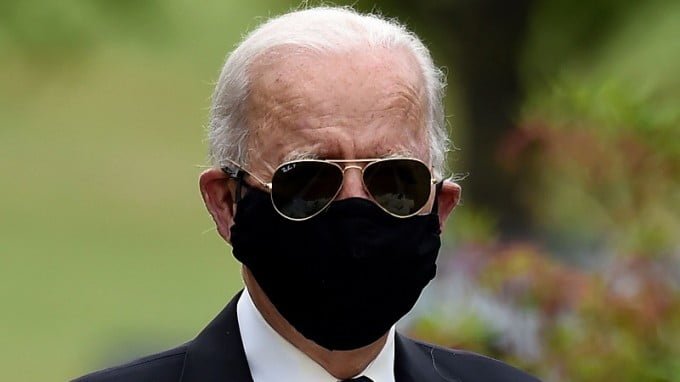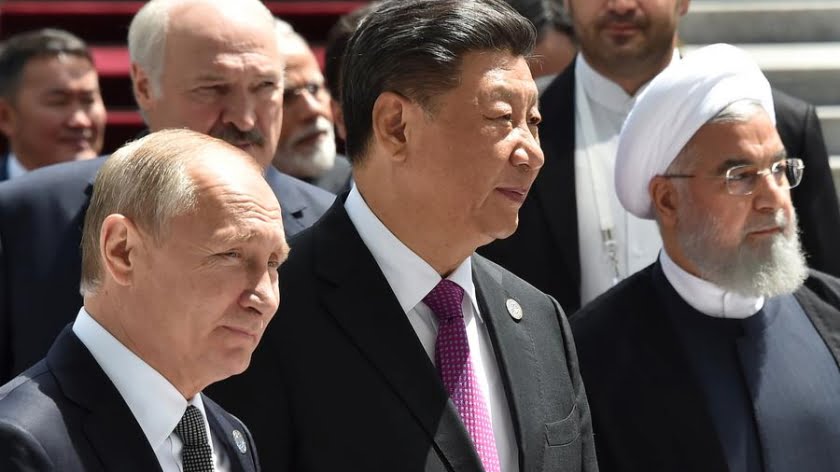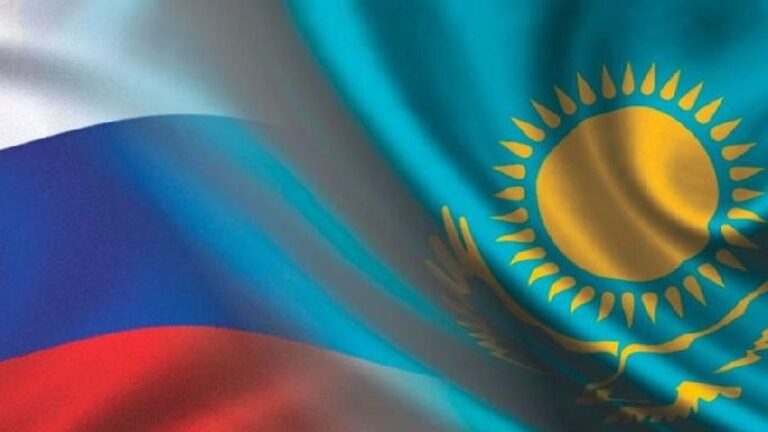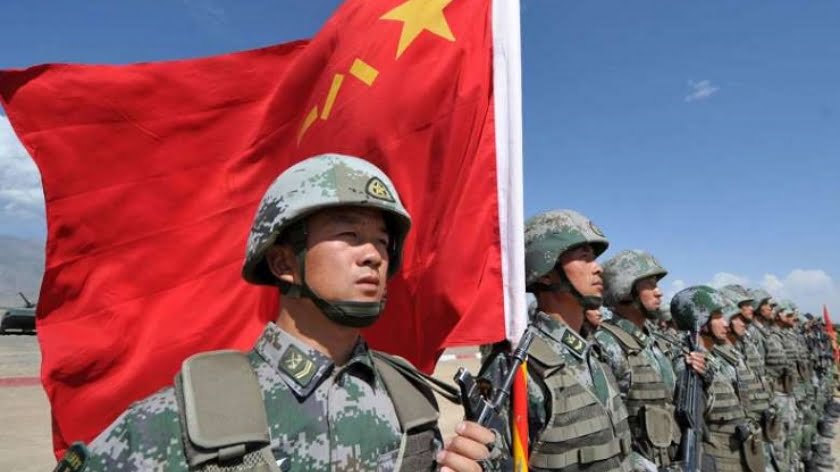Strengthening Relations between China and North Korea
At the end of August 2018 various sources reported that Chinese President Xi Jinping is to visit Pyongyang on September 9 for the Day of the Foundation of the Republic, and is highly likely to attend the military parade. This will be the first visit to North Korea by a Chinese leader in 13 years. We will discuss the visit itself in a separate article – here we will look at relations between the two countries in the context of the ongoing standoff between the USA and China.
It is worth bearing in mind that when Donald Trump talks about the reasons why the “North Korea denuclearisation” talks have stalled, he tends to put the blame on “Chinese intrigues” rather than on Kim Jong-un. For example, on July 9 he wrote from his Twitter account: “I have confidence that Kim Jong Un will honor the contract we signed &, even more importantly, our handshake. We agreed to the denuclearization of North Korea. China, on the other hand, may be exerting negative pressure on a deal because of our posture on Chinese Trade -Hope Not!” In another message, sent on August 30, he wrote: “…we also know that China is providing North Korea with considerable aid, including money, fuel, fertilizer and various other commodities. This is not helpful!”
On July 23, US Senator Lindsey Graham also accused China of pulling the DPRK back, and called for an increase in pressure on Pyongyang and Beijing, along with other policies.
These statements should be seen in the context of the USA’s frequent allegations that Chinese companies are supporting the DPRK, in breach of the sanctions regime, in particular by supplying Pyongyang with coal.
This position has provoked protests from China. On August 25 the Chinese Foreign Ministry denied the USA’s claims that Beijing is obstructing the denuclearisation of the DPRK. The Chinese Foreign Ministry stated: “The USA’s assertions are contrary to basic facts, and are irresponsible. We are seriously concerned about this.” The Foreign Ministry stated that it had made “stern representations” to US officials, and added that it would continue to work towards speeding up the disarmament of North Korea.
Pyongyang is also following the situation. On August 27 the DPRK’s official newspaper, the Rodong Sinmun, published an editorial discussing the trade dispute between Washington and Beijing, the US 2019 National Defense Authorization Act, and China’s reaction to it. As the newspaper points out, the National Defense Authorization Act puts limits on Chinese investments in the US: it prohibits the use of technologies produced by Chinese companies and trading with organisations that use such technologies. The law is likely to further inflame relations between China and America, already strained as a result of the tariff issue.
While it is not possible to accuse the Chinese government of directly sabotaging the sanctions regime, it is true that, in view of the trade war between the USA and China and the risk of a “fourth Taiwan crisis”, Beijing has effectively refused to cooperate with Washington on the North Korean question and has started actively supporting Pyongyang.
This primarily applies to the wish to officially relax the current sanctions regime, given that the DPRK is complying with the moratorium on nuclear testing, has stopped launching rockets and has demolished a range of related infrastructure facilities. Side by side with that goes the development of economic links where these are not expressly prohibited by the sanctions.
Thus, on June 20 2018 a representative of the Chinese Foreign Ministry stated, during a meeting with South Korean journalists, that the pressure – i.e. sanctions – on the DPRK should be progressively eased as progress was made on the resolution of the North Korean nuclear issue. He also said that there were plans to increase investment in areas close to the North Korean border: many companies may express their interest in developing their economic and trade links with North Korea, which would be a good opportunity for Pyongyang.
On June 29, in a scheduled briefing session, Chinese Foreign Ministry spokesman Lu Kang said that sanctions were not an end in themselves and that a diplomatic solution to the North Korean issue was essential. Russia and China also encouraged the UN Security Council to issue its press statement on the need to relax the sanctions pressure on the DPRK.
On July 20 China and Russia blocked the US proposal to prohibit the delivery of petroleum derivatives to the DPRK. They asked for more time to study the proposal, and requested the USA to provide evidence that the agreed limit on supplies had already been reached. At the end of August the USA sent a request to UN Security Council, claiming that so far this year 89 unauthorised deliveries of petroleum derivatives have been made to the DPRK. In this way the DPRK has already exceeded the permitted annual limit on deliveries of petroleum derivatives – 500 000 barrels – which was introduced by Resolution 2397, approved in December 2017. The USA claims that North Korea has received at least 759.793 barrels this year. Russia and China have also requested more evidence to support the USA’s figures.
On July 25, Alexandr Matsegora the Russian ambassador to the DPRK, said in an interview with TASS that Russia, together with China and other countries, was trying to persuade the USA to soften the sanctions regime. He believes that this will “work in favour of the denuclearisation process.” The ambassador pointed out that the sanctions regime is seriously holding up three-party projects between the two Koreas and Russia. “It’s important to open up a wide channel, first for inter-Korean communications, then for three-and four-party projects and other international projects. That is the only way to integrate the DPRK into the international economic system so that it can, in the end, become part of the civilized global community.”
To move on to the issue of economic support: admittedly, figures on this issue normally come from parties with their own agenda, but they cannot be dismissed outright as they are indirectly confirmed by many other facts. For example, the conservative South Korean newspaper, the Chosun Ilbo, reports that after the third visit of the North Korean leader Kim Jong-un to the country in June 2018, China started making deliveries of fertiliser and food again, and doubled supplies of crude oil through the pipeline from Dandong. The newspaper reports that North Korea has received between 200 000 and 300 000 tonnes of fertiliser, approximately the same amount as China sent it in 2013, before relations with North Korea worsened.
As for the oil supplies, they are necessary to prevent the pipeline getting blocked up: the minimum delivery should be 30 000-40 000 tonnes in the summer and approximately 80 000 tonnes in winter, although in recent months China has increased its deliveries to “winter levels”. As the newspaper points out the UN Security Council resolution capped deliveries of crude oil to North Korea at 4 million barrels, or 560 000 tonnes a year. But if China sends 80 000 tonnes of oil to North Korea each month, that makes 960 000 tonnes a year. Is this a violation of the sanctions?
The same newspaper reminds readers that large trucks carrying iron ore mined in the DPRK have been seen crossing the bridge between Hamyong Province in North Korea and Jilin Province in China. Even though the export of iron ore is prohibited by the UN Security Council resolution.
And, according to Radio Free Asia, China has, in violation of sanctions, delivered two generators with a capacity of 100 000 kilowatts each to North Korea. To prevent them from attracting attention, the generators were transported by sea and are now installed in the Pyongyang Thermal Power Station. As the population of Pyongyang needs about 500 000 kilowatts a day, this represents a major increase which will enable the city to solve its problem of power shortages.
In addition, while in the past the hydroelectric power station on the Yalu River supplied both China and North Korea, since the second meeting between Xi Jinping and Kim Jong-un, which took place in Dalian on 7 May, China has been sending all the power to North Korea, and supplying its own border regions from other sources. This is a very significant “gift”, especially considering the fact that many of North Korea’s problems, including the “March of Suffering”- the famine in the 1990s, have been related to the country’s energy crisis.
Tourists are also free from problems. Reuters reports that Chinese tourists are travelling to North Korea in increasing numbers. The most popular tours are 4-day trips that take in Pyongyang and the border with South Korea. Chinese guides believe that the high level of public safety attracts tourists to the DPRK.
Another type of support is the approval of efforts to develop inter-Korean cooperation and establish peace on the Peninsula. Gong Hyeon-U, Assistant Minister at the Chinese Foreign Ministry and Special Envoy on Korean Peninsular Affairs, visited Pyongyang on 26 July and discussed questions relating to cooperation between the two countries. According to the KCNA, North Korea’s news agency, he met the DPRK’s Deputy Foreign Minister, Ri Kil-song. The details of their conversation have not been disclosed, but experts assume they talked about the dialogue between North Korea and America, the denuclearisation of the DPRK and the official declaration on the end of the Korean War.
South Korean analysts believe that similar questions were discussed in relation to the recent visit to Seoul of Yang Jiechi, member of the Politburo of the Central Committee of the Communist Party of China. While initially Beijing did not show any obvious interest in this question, later it became more active. Korean media report that Yang Jiechi’s visit is a proof of that. In the Korean War, China sided with North Korea, and the fact that it is now taking an active interest in questions related to that war demonstrates that it does not want to be left on the sidelines.It should be noted that Seoul is not against China getting involved. As a representative of the South Korean Presidential Administration stated on July 31, the peace treaty could be concluded between four parties, i.e. both Koreas, the USA, and China. He emphasised that the important thing was not China’s participation in the peace talks per se, but the effectiveness on the work on this question.
And, naturally enough, China welcomes the decision to hold the next inter-Korean summit in September, as Chinese Foreign Ministry spokesman Lu Kang makes clear in a statement on the Ministry’s web site. China, a close neighbour of the Korean Peninsula, views the support for dialogue between South and North Korea, and the promotion of peaceful cooperation, with optimism. In his statement, Lu Kang expressed hope that the meeting between the leaders of the two Koreas will bring positive results, help bring about the denuclearisation of the Korean Peninsula and a political solution.
While supporting peace, China is nevertheless preparing for various possible eventualities: as Voice of America reported on August 20, this spring and summer a number of military exercises were conducted in border regions of China, rehearsing possible reactions to the beginning of a conflict on the Peninsula. The exercises even involved a large detachment of troops crossing the Bohai Bay at night. Citing a secret Pentagon dossier on Chinese military policy, and its section on the DPRK, Voice of America writes that in the event of a crisis or conflict on the Peninsula, the Chinese People’s Liberation Army could be ordered to engage in a range of operations, from securing the China-North Korea border in order to prevent the flow of refugees to a military intervention into North Korea. It is worth noting that such an intervention is permitted by the wording of the Sino-North Korean Mutual Aid and Cooperation Friendship Treaty, signed by both countries in 1961, although the US military is still unable to say whether or not such an intervention would be in support of the North Korean regime.
Whatever happens, China has a large concentration of forces based in the potential military theatres of operation near the DPRK border, including some three army divisions composed of some 170 000 soldiers, a naval division, two air force bases, one specialised airborne division, two marine aviation divisions and a division of the People’s Armed Police, which is responsible for border control. That is a show of force that can not be ignored.
The Chinese leader’s return visit to Pyongyang will thus be a natural continuation of the trends outlined above, although a year ago the situation was very different – on September 3 2017 Kim Jong-un conducted his sixth nuclear test.








Trump has waged a ridiculous trade war against China. He uses sanctions as weapons against small nations Venezuela and Nicaragua to destabilise them. To do the same against China and also Russia is insane. The dollar is in decline. More and more nations are changing currencies away from the dollar. The US has an enormous un-repayable debt of more than two hundred trillion dollars, much of it owed to China. Soon China will refuse to lend. to the US. China is the ally of North Korea and should be applauded for breaking the US sanctions and will I hope do the same for Nicaragua and Venezuela. It’s time the world fought back and defied the US/Zionist war mongering bully .